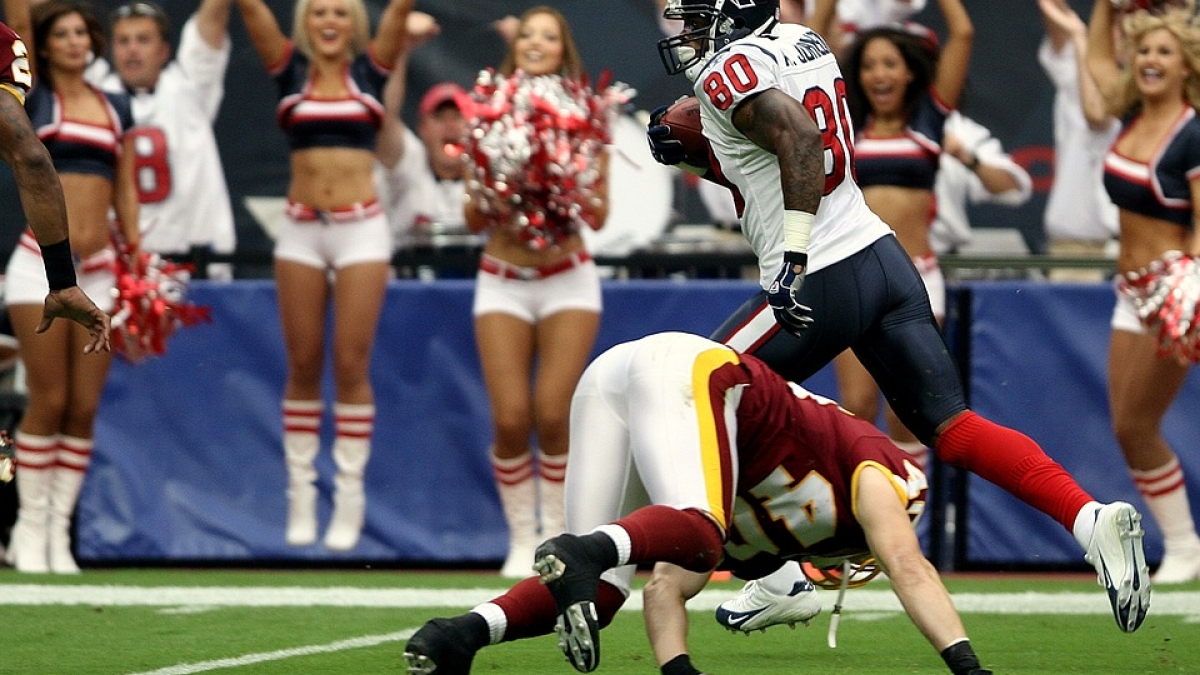When the National Football League resumes in August for its 101st campaign, there will be a lot to celebrate.
Fans most likely will return to stadiums en masse to watch the sport they so love and cheer for their favorite player or team in person. They’ll also get to witness an extra game thanks to a recent agreement reached by the owners and players.
Last week the NFL and the NFL Players Association announced they’ve reached a collective bargaining agreement (CBA) that is binding until 2030. It calls for the elimination of an exhibition-season scrimmage in favor of an extra official game, expanding the season to 17 games — the most ever in the sport's history. The exhibition season will decrease from four to three games, and all 32 NFL teams will also participate in at least one international game every eight year, according to the agreement.
On the surface, it all sounds like gravy. More regular-season games, more revenue, more fans in the stands, more tailgate parties, more Sunday afternoons parked on the couch to watch pro football. But are there possible drawbacks to this historic agreement that no one is talking about?
ASU News consulted Kenneth Shropshire, the Adidas Distinguished Professor of Global Sport and CEO of the Global Sport Institute at Arizona State University, to see if this new arrangement is a touchdown or a letdown for pro football.
Kenneth Shropshire
Question: The idea of expanding the NFL season has been kicked around for a decade. I’m curious as to why it took so long to come to fruition?
Answer: I think the reason to do it now was largely the financial pressure that the pandemic brought on. The new agreement also means more revenue for the players and the owners, so that was the balance that came out of this deal. That extra regular-season game was a financial gain for everyone involved. (Editor’s note: In addition to more television revenue for players, the broader CBA means there will be increases for rookies and minimum-salaried players, practice-squad players and the overall performance pay pool. Fines will also be decreased for players, including marijuana punishments.)
Q: Did the NFL lose money last year because of the shortened season as a result of the pandemic?
A: Did they lose money? Well, analysts point to probably a multimillion-dollar reduction in revenues. Although media rights were stable, the live gate and ticket revenues were not.
Q: I’m sure there are many pros and cons to this deal, but let’s start with the pros, specifically with the owners and fans in mind.
A: Pros for the fans is more football — more real football, not preseason football. Fans will get to see more of the players and teams they want to see. For the owners, it’s more revenue.
Q: Any cons for the players?
A: The biggest con for any player is the potential for injury given the extra regular-season game. Their participation in preseason games is typically less, particularly for the star players. Coaches want to see a variety of players on the field and assess their performances. In a regular-season game you are, almost always, playing to win. The other con is for rookies and other incoming players into the league who need to get game time or a look by the coaches to assess their talent level and show how they can play. Basically more time to display their talent and stick around on the roster, but now they’re going to get shorted a game.
Q: Another con that has been discussed is that the extra game means less conference play, which means it waters down a team’s record. Your thoughts?
A: Different teams have different philosophies on those games outside of the conference and how they treat them. It really depends on the franchise.
Q: You recently researched the NFL’s record on hiring coaches of color. Do you think it’s possible that this expansion could be an opportunity for more Black coaches in the NFL? And if so, in what way?
A: I would say the expansion could open the door in that regard: A longer season might mean a greater opportunity for a team to fail, which in turn could lead to more opportunity for change and a call for new blood on the coaching staff. It very well could lead to new opportunities for Black coaches. Who really knows?
Q: Given what you know, was expanding the season to 17 games a good idea?
A: Well, this is a lot of games, and the long-term physical impact on players is going to be greater. The average life span of a pro football player has been reported to be around three and a half years, so will the wear and tear on them shorten their careers? With an additional game each season, it’s bound to. On the other hand, players will be making more money than ever. It’s like your basic economics class: There are pluses and minuses, and will the extra revenue balance the ledger? In the end, the union, the bargaining unit for the players agreed to this and they have more data than me.
Top photo courtesy of Pixabay
More Health and medicine

Bird flu: Your questions on symptoms, spread and safety answered
Bird flu is no longer only “for the birds.”Infections have expanded beyond wild birds and poultry to a range of animals — from mice to mountain lions, dairy cows to domestic cats, and polar bears to…

Making medicine side-effect free
Many drugs that address medical conditions can come with serious side effects. In drug commercials, the litany of potential side effects is often longer than the benefits being touted. Carl…

Diagnostic research happening at ASU focused on detecting diseases earlier to save lives
It was one of America’s founding fathers, Benjamin Franklin, who may have foreshadowed today’s health care innovation when he quipped the adage: An ounce of prevention is worth a pound of cure.In…



